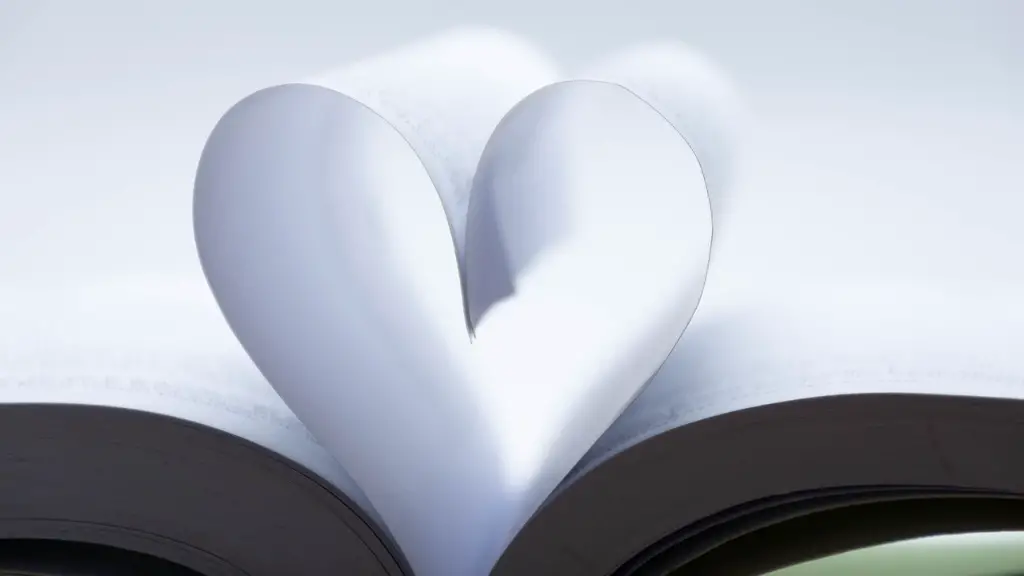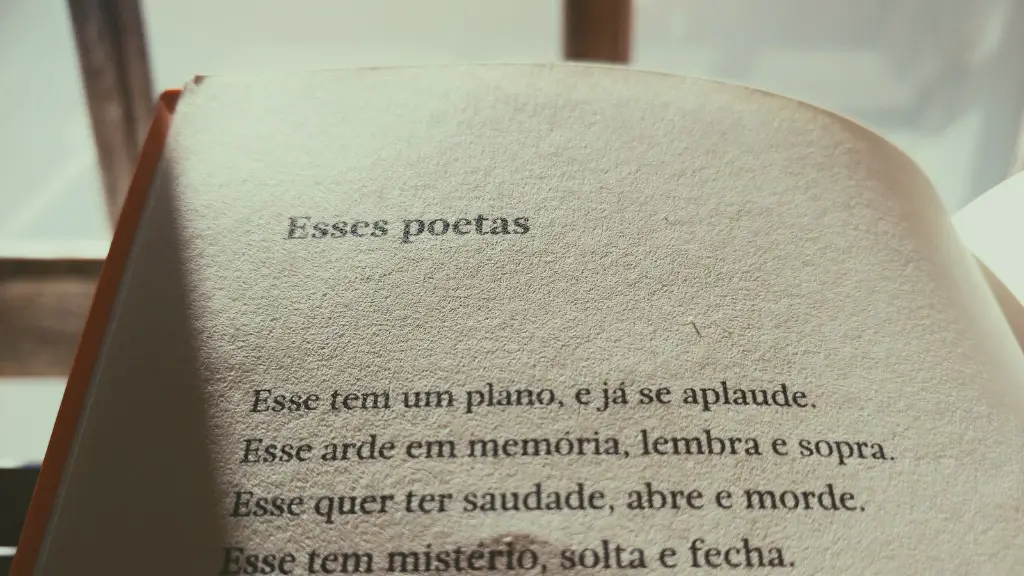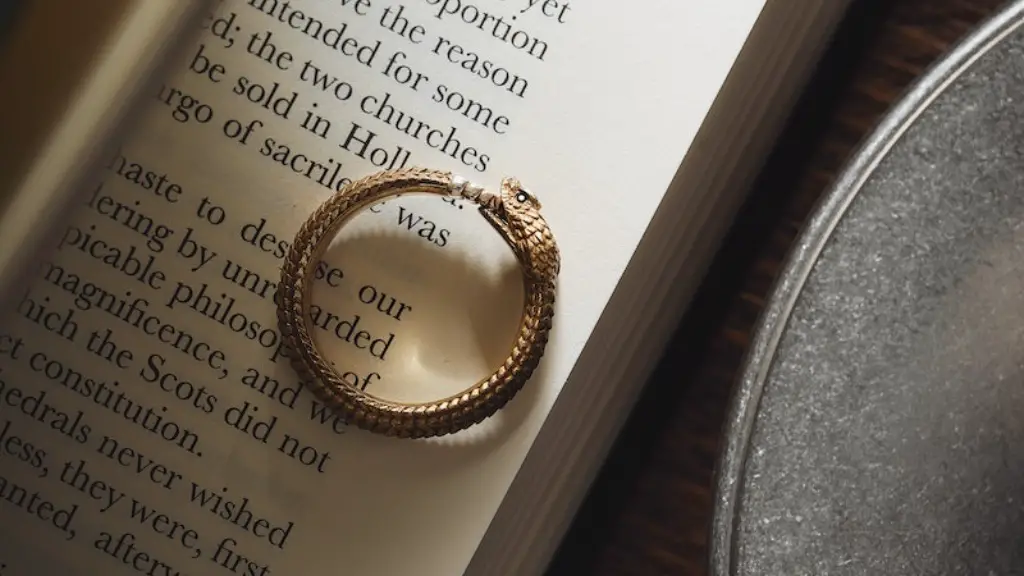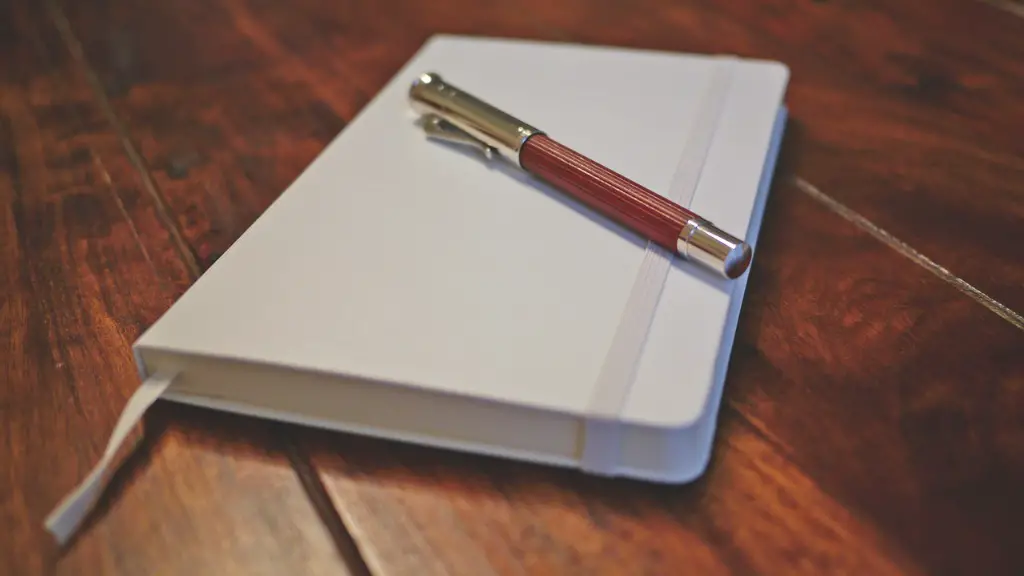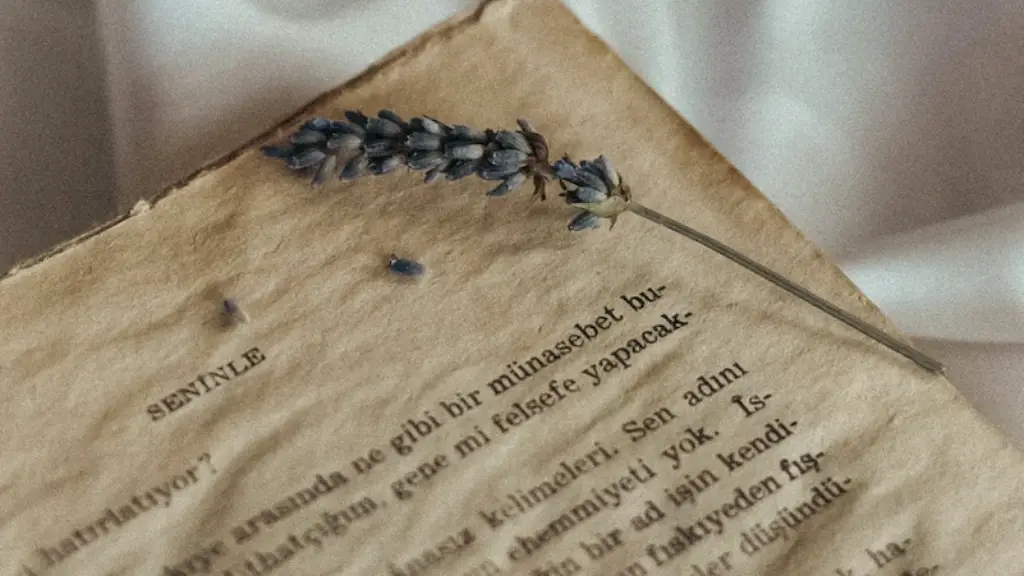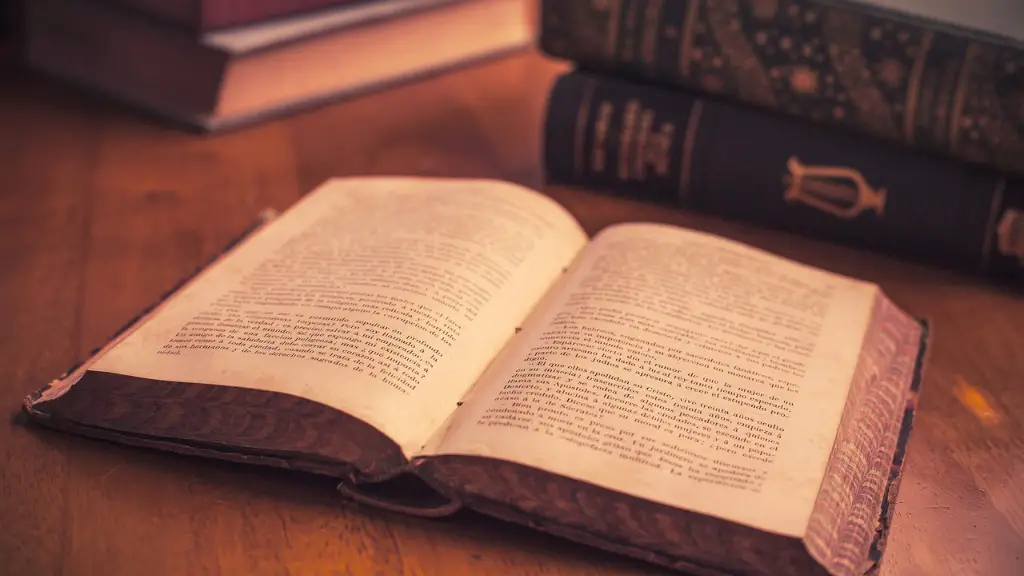What is irony in poetry? That is a question that has been with us since the beginning of written verse. Irony is a rhetorical device used by poets to carry subtle messages and add depth to their works. At its simplest, irony is a figure of speech that expresses a meaning opposite to the literal one. By using irony, poets transcend the literal word and open up a realm of hidden meanings that can spark the imagination and bring different readers to different interpretations.
Irony contains a paradoxical aspects. A paradox occurs when two seemingly divergent elements come together to create a deeper understanding of a subject. Poets use irony as a tool to express tensions within a poem that a reader might have overlooked if the poem was written without irony. Used in this manner, irony can remind a reader of the complexities of the human experience. Additionally, irony in poetry can add a sense of playfulness and humor to a piece of writing that can otherwise be heavily laden with emotion or heavy philosophical concepts.
Irony is manifested in a number of different ways. Dramatic Irony is when the audience or the reader is aware of a tension or truth between two characters, yet the characters themselves cannot recognize it. Sarcasm is a form of verbal irony where words are used to mock or belittle. Verbal irony is also used to create a situation in a poem where the poet reveals more than meets the eye, often through humor. Finally, situational irony is when a seemingly positive event turns out to have an unexpected negative outcome, or vice versa.
Irony can add depth and complexity to a poem by building tension between keywords, breaking up the traditional conventions of language, and subverting expectations. When effectively used, irony can enliven a poem to be enjoyed on many levels. Irony can also help create a memorable moment in the poem that sticks with the reader beyond the literal meaning of the poem.
Irony in Historical Poetry
Irony is one of the oldest literary devices, used by ancient Greeks and Romans in their epic poems. This device was particularly popular among satirists, who used irony to show the contrast between appearance and reality. Many of the most famous classic poets such as Homer, Virgil and Chaucer used irony as a storytelling device.
In the Romantic period, irony was used to express dark and complex emotions. This tendency is visible in the poetry of Lord Byron, who wrote about heartbreak and tragedy. Here the irony serves to underscore the vulnerability of the speakers in their trials and the futility of the characters’ attempts to confront their predicaments.
Irony continued to be employed throughout the 19th and 20th centuries. In the works of T.S. Eliot, irony expresses his alienation from the world. Robert Frost used irony to juxtapose life’s joys and sorrows. His poems are often full of ironic shifts and sudden turns. It is this kind of irony that adds poignancy and depth to his works.
The modern poet Gertrude Stein also used irony to remarkable effect. In her works, the irony often serves to highlight society’s hypocrisies, such as gender inequality and racial discrimination. These social critiques in her work remain pertinent to this day.
Irony in Contemporary Poetry
Irony can be seen in the works of many contemporary poets. In Hayden Carman’s ‘I Keep A Ledger’, the irony is used to highlight the speaker’s despondency in the face of relentless commodification of everything in their life. In Aditus’ ‘The Lion and the Fox’, irony is used to explore the clash between ambition and love, as well as the complexity of relationships. In Anis Mojgani’s ‘Knock it Off’, irony is employed to criticize the hatred and violence that is strongly present in today’s society.
Irony is also used to great effect in performance poetry. For example, slam poet Rudy Francisco’s poetry often uses irony to highlight the hardships of vulnerable communities. In ‘Pretty’, he uses irony to demonstrate the dichotomy between happiness and sadness. This type of irony stands out particularly well in performance, as it often elicits a strong reaction from the audience.
Using Irony in Poetry
For poets looking to employ irony in their work, the first step is to become aware of the different types and forms of irony. Once the type of irony is identified, the poet needs to create a context for it to be used effectively. Irony is at its most powerful when the poem contains a single thought that can be understood from multiple angles.
The words a poet chooses are also especially important when employing irony. The best works of poetic irony involve a juxtaposition of emotions through word choice, such as hopelessness and hope, or lightness and darkness. This kind of contrast adds depth to the poem and keeps readers engaged as they attempt to decipher its hidden meaning.
Irony can be a difficult device to master, so it’s helpful to read other poets’ works to gain a better understanding of how they use the device. By familiarizing oneself with successful applications of irony and forming an idea of how it’s used in different contexts, poets can get a better grasp on how to utilize irony in their own works.
The Impact of Irony
Irony in poetry can open up an entire realm of hidden meanings that might otherwise remain elusive. When used to its full potential, irony can bring a work of art to an entirely new level of complexity that can captivate, challenge and entertain readers. From classic texts to modern poetry, irony can be seen as one of the most valuable tools a poet can employ in their work.
Irony and Power Dynamics
One of the major ways in which irony can be used in poetry is to undermine power structures. Irony can be used to expose unfair power dynamics and bring attention to oppression. This type of irony helps the readers to recognize issues of injustice and inequality and encourages them to challenge them.
Irony can bring attention to the limitations of language and its power in maintaining the status quo. By using irony to undermine oppressive language, writers can help to subvert authority and inspire readers to challenge oppressive systems of thought and discourse. Oscar Wilde’s ‘The Ballad of Reading Gaol’ is a prime example of this type of irony.
Irony can also be used to explore the concept of freedom in a poetic way. Poets can use irony to explore what it means to be free and the power dynamics that can limit that freedom. The late poet and musician Gil Scott-Heron’s ‘Whitey on the Moon’ is an example of how irony can be employed in this context.
Irony and Activism
Irony has long been employed to bring attention to social and political issues. The technique of ironic amplification has been used by activists to make their points in a powerful way. In many of the works of contemporary writers such as Sarah Kay, Tony Hoagland, and Danez Smith, irony is used to raise awareness of timely issues.
Irony is a highly effective tool for making social critiques. Writers can use it to articulate subtle and complex issues without having to hit the reader over the head with them. By using irony to make a specific point, writers can highlight the fundamental ethical concerns of a situation in a way that is both subtle and provocative.
Irony is also a powerful tool for inspiring empathy in a reader. It can portray a number of sides to a story or situation that may not have been considered previously. By taking an ironic stance and allowing readers to experience the clashes between their expectations and reality, writers can make their points in a powerful and meaningful way.
Irony and Humor
Humor is often an important aspect of irony in poetry. Irony can add humor to a piece of writing as it highlights the gaps between a speaker and their circumstance. Much of Shakespeare’s comedic works are based on irony, especially in plays like Romeo and Juliet and Hamlet.
Agustin Fernandez Mallo’s ‘My Life’ is an example of irony used for comedic effect. The poem takes the form of an autobiography, where the poet details the mundane events of their life. By using irony to make the poem a tongue-in-cheek reflection on modern life, Mallo is able to make an otherwise mundane subject into an amusing read.
Irony can also be used for black humor, which is a type of comedy that sees the humor in otherwise dark or depressing subjects. This can be an effective way to discuss difficult topics without desensitizing the reader. Sylvia Plath’s ‘The Applicant’ is an example of black humor used in the form of irony. Plath highlights the absurdity of society’s expectations of marriage and how it can be used to keep women in a state of oppression.
Irony and Genre
Irony plays an important role in the genre of poetry. Its role as a device is to cross boundaries between poetic genres, reminding us of the complexity of life and the impossibility of confinement. One of the main advantages of irony is its ability to make a poet’s message timeless and applicable to different readers from different time periods.
Irony also helps us to reflect on our lives and those of people around us. It helps us to better understand the ambiguities and contradictions of the human experience. Irony allows us to look at a problem from different perspectives and to regard our daily lives with humor and thoughtfulness.
In conclusion, irony is an invaluable tool for poets of any genre. It is a device used to critique society, to question the status quo and to explore the complexities of the human experience. By understanding how to use irony effectively, poets can create works of great significance and lasting impact.
